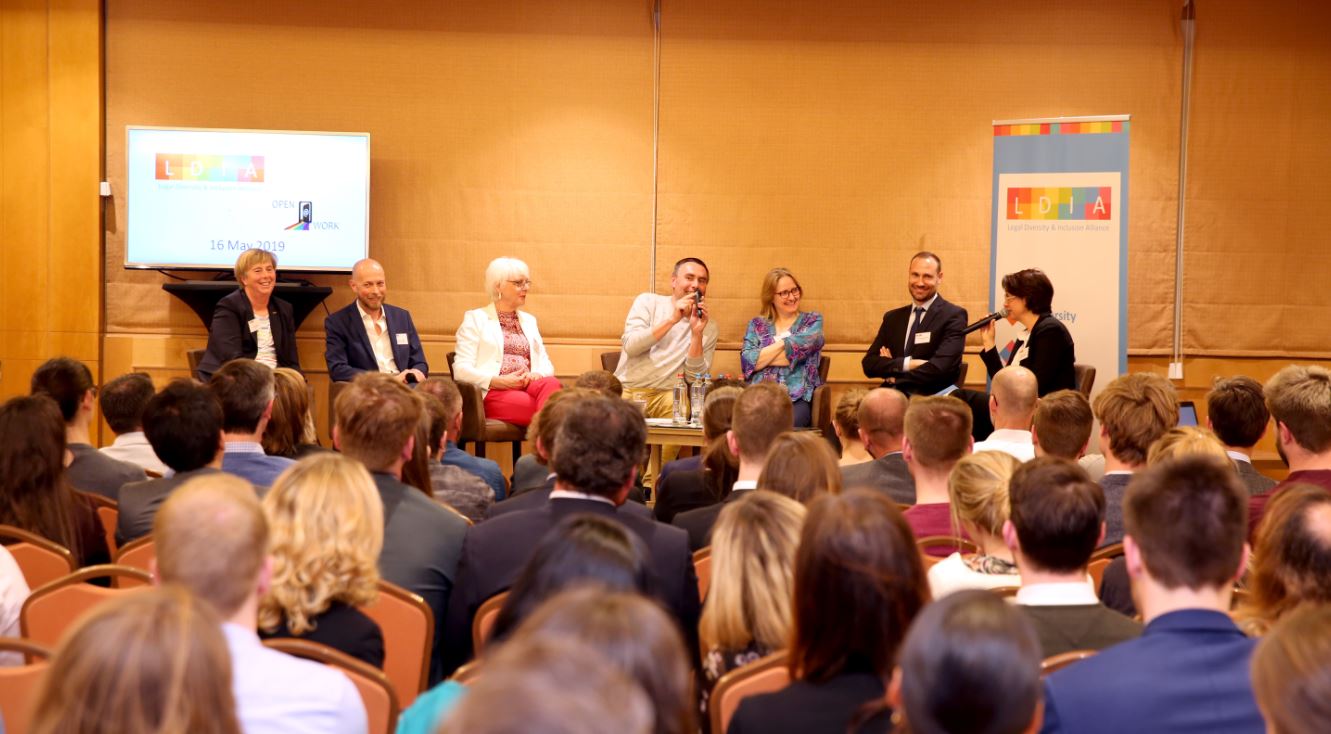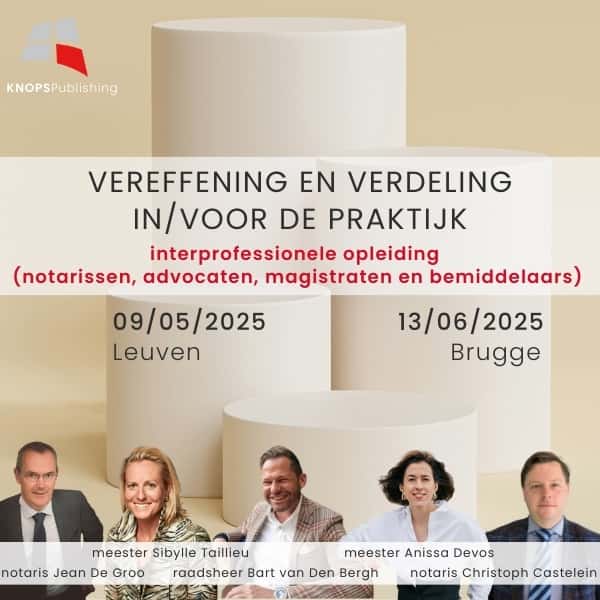|
LDIA organized a panel discussion focusing on LGBT+ coming out at the workplace. Following the panel discussion, a networking moment was organised with Open@Work, a joint initiative aimed at connecting LGBT+ people and support networks across companies. The three main goals of this initiative are building a cross-company network, focusing on ‘out in the workplace’, joining forces in creating an inclusive work environment for the LGBT+ community, and exchanging good practices on LGBT+ and ally company networks. The panel was moderated by Nathalie Delporte, Radio DJ on Joe, and consisted of the following panellists: Yves Aerts, Coordinator at çavaria & Board Member ILGA-Europe, Fran Vervoort, former CFO Securitas Alert Services, Andreas Kafetzopoulos, Attorney at Skadden, Arps, Slate, Meagher & Flom, Hildegard Van Hove, Coordinator Gender Statistics at the Institute for the Equality of Women and Men, Gerard Gryspeert, Strategic Purchasing Manager at Procter & Gamble, Co-founder & co-leader of the Belgian branch of GABLE, P&G’s affinity network for LGBT+ employees and their Allies, Kat Van Nuffel, Director at Steptoe, Co-Chair LDIA. After the panel discussion, the panel members were interviewed. You can watch this video on the LDIA website. In addition, especially for this magazine, Kat highlights the main issues together with her colleagues. |
Sven, as the chair of Open @ Work, can you share about Open@Work; how it all started and what the goal is?
“As a LGBT Lead at Accenture and – at the time – a member of the board of directors of çavaria (theme workplace), I noticed that many companies continued to struggle with the question of how to deal with diversity and LGBT networks. My goal was to create a network, just like in a number of neighbouring countries, but tailor-made for Belgium, where knowledge and experiences can be exchanged.
The network started small, but has grown organically over the past three years, and more and more organisations and companies are showing a genuine interest.
Companies and organisations that contact me and say they have “no problems” in terms of diversity and LGBT do have a problem. Many people still experience difficulties in daily life, even in companies that take diversity more seriously. There is still a lot of work to be done.
Andreas, can you tell us why it is important to come out at work, and is it different at a law firm?
“Working at a law firm is a highly rewarding but also stressful job. Hours are long, deadlines are tight, and stakes and expectations are high. Experts agree that hiding who you are or pretending to be someone else is a waste of precious time and energy and only adds to this stress hampering your productivity and overall performance. When you are able to bring your whole self to work, you are free to be more creative and productive and focus on your career without unnecessary distractions. A professional environment where you can be yourself can only positively affect your personal life and improve your overall well-being. Also, being open about who you are helps build relationships of trust and respect with superiors, colleagues and clients, which is one of the foundations for career development and professional growth.
Ultimately, being out at work can only benefit someone personally and professionally. Of course, everyone has their own journey, which starts from self-acceptance.”
Hildegard, you are working as a Gender Statistics Coordinator at the Institute for the Equality of Women and Men. The Institute carried out research into the situation of transgender people in Belgium in 2008, and again in 2018. So there are two comparable sets of data. What are the most important observations concerning transgender people at work?
“One of the most important findings of the study was that transgender people are more open now than ten years ago. They are more visible. The age of coming out has drastically decreased for the younger generation from an average of 30 years to an average of 17 years. That also means that people are still very young and at a vulnerable age when they come out.
A second finding is that overall well-being has not improved. Many transgender people are confronted with a lot of misunderstanding, rejection and even discrimination. Work remains the most important factor for people not to come out or not to come out everywhere. Problems they encounter are inappropriate curiosity (37%), not being addressed with the chosen name (36%), being criticized for their appearance, ideas and behaviour (30%), violation of privacy (20%) and being bullied (16%).
As a result of the first research, the Institute has put a lot of energy into improving the legal protection of transgender people. For the coming decade, however, we will have to invest in improving the understanding among the general public; fight against the awkwardness around the subject. Much has to do with traditional stereotypes about women and men.”
Yves, could you share with us a few most common prejudices regarding LGBT+ as a whole at the workplace, and what would be your suggestions to turn these prejudices into acceptance and inclusion?
“There are no LGBT+ people with us.”
Not every LGBT+ person comes out at work. Certainly at the start or when the employee is in a higher position, it might be difficult, because one has a lot to lose. Ensure that a framework is established in the policy, vision and throughout the layers of the organisation so that people feel safe and comfortable to do a coming-out. Also provide a confidant to whom one can talk.
“We have a gay man at our place and he is very happy, so there is no problem.”
Not everyone has the same norms and values. So what is good for one person might feel completely different for another. As an organisation it is recommended to do an anonymous staff survey. Anonymity is really essential. This way the organisation gets a correct picture of how employees feel. The survey should contain in-depth questions about LGBT+ topics.
“We are working on diversity in general, we do not want to think in terms.”
If one pursues a policy that is too general, various target groups might feel excluded. So it is better to explicitly name the target groups, so that they too get the feeling that they are part of the organisation. This leads to a more inclusive and diverse workplace. This way diversity networks can communicate the specific needs of the different target groups to the organisation and the organisation can take these into account.
“Sexual identity and preference belong to the private sphere, not to the workplace.”
The workplace is an environment where people spend most of their lives. The feeling that you always have to hide causes a lot of stress, which in turn requires a lot of energy. Consider a conversation between colleagues in the coffee corner, where stories about the past weekend are exchanged.
If one can be fully oneself, one gets the opportunity to focus on work and the development of talents. Ensure that unconscious prejudices are recognised in the workplace and that they are addressed. Awareness of these prejudices is the first major step towards a more inclusive workplace.
Gerard, Last year, P&G was named ‘Most Inclusive Employer’ by KLIQ and VOKA. Can you tell us a bit more about the journey to reach that point?
“Back in 2012/2013, several colleagues in our Brussels office launched the Belgian chapter of GABLE, our corporate LGBT+ network. GABLE had existed in the US since 1996, but for a long time many people believed that we had nothing left to fight for in Belgium, what with the legal situation being quite advanced here.
Since then, we have obtained a lot of support from both HR and senior P&G leaders, which has enabled us to make the subject open for discussion. Through guest speakers, trainings and other internal events, we have been able to show the organisation that life for our LGBT+ colleagues does not always smell of roses. Employee surveys also demonstrated that many LGBT+ people are still in the closet at work, and that being out greatly improves their relationship with their leadership and co-workers.
Today, sexual orientation and gender identity/expression are an integral part of all our HR policies. We provide voluntary LGBT+ awareness trainings to HR, senior leaders and Allies in general. People can become visible Allies by putting a rainbow sticker on their corporate badge. P&G Belgium has also participated with a walking delegation in the Brussels Pride parade every year since 2015.
The proof of the pudding is in the eating, and I am glad to say that our survey results have shown marked improvements around diversity & inclusion since we launched GABLE. We also hear lots of anecdotal evidence of the very positive impact we have been able to make on overall LGBT+ wellbeing.”
Thank you all for the super interesting discussion. It was an honor to have you as our panel members.
by Kat Van Nuffel (Co-Chair LDIA, Steptoe)




0 reacties